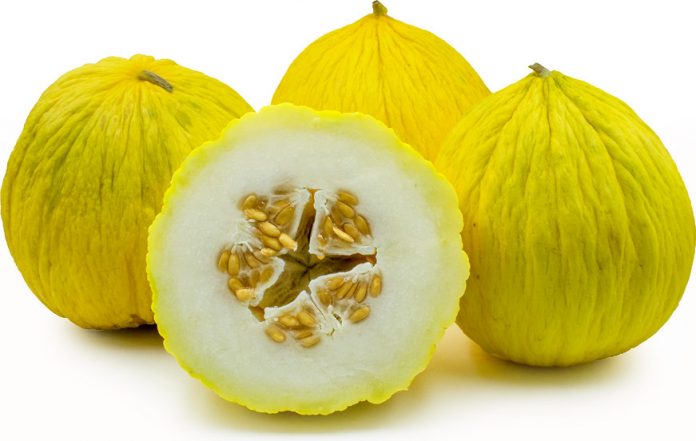The Casaba Melon was introduced to me through a newsletters from my grandson elementary school. It stated that the melon would be served this year in the cafeteria. It further stated a little more information about the Casaba Melon. Now, as a resident of the south Easten United States, I am familiar with melons; such as the watermelon, cantaloupe and dew melon but not a Casaba Melon.
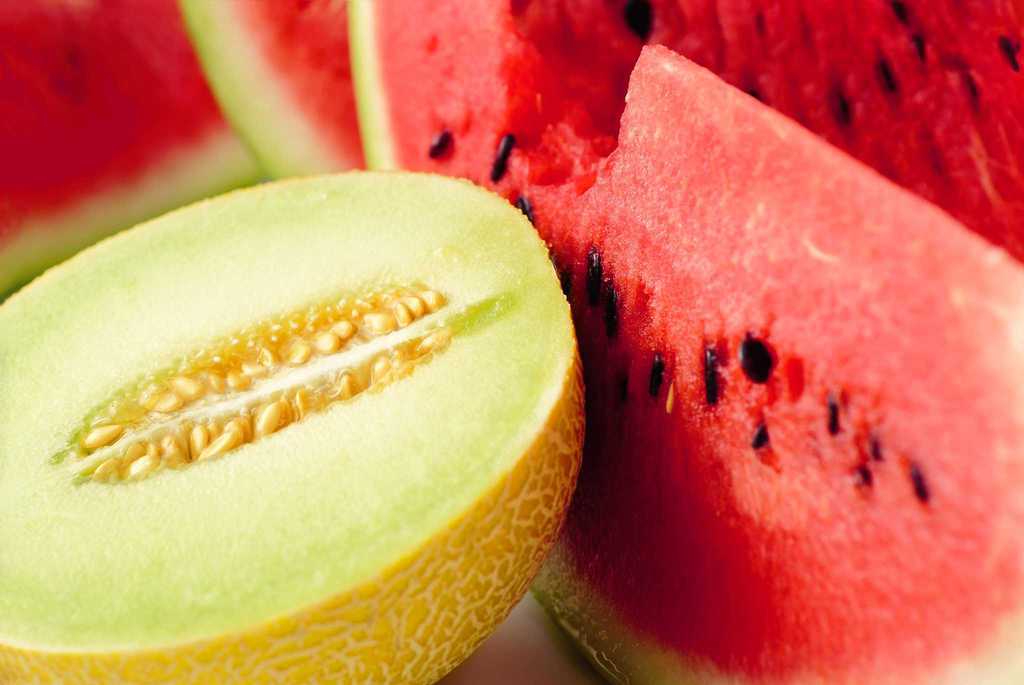
I said to myself, ” What in the world is a Casaba Melon? So of course I did some research.
Casaba Melons are very high in Vitamin C. Just one serving gives you 62% of your daily requirement of Vitamin C. This is just one of the reasons why this type of melon should be included in your family diet. Casaba Melons are also a good source of iron, calcium, vitamin k and potassium.
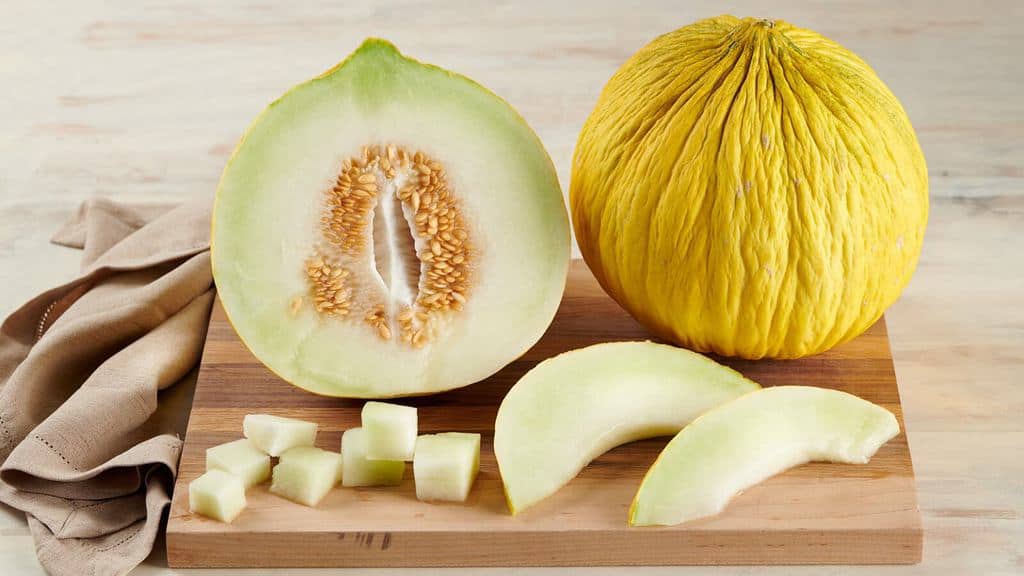
Most Casaba Melons that you see in the supermarket are grown in South America and the South Western United States; such as California and Arizona. This geography factor makes this melon available to the consumer year round.
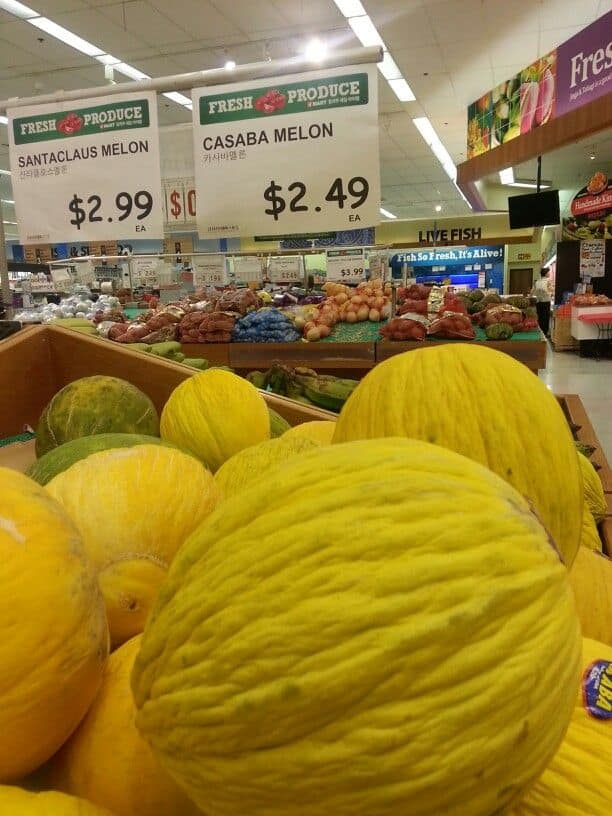
When purchasing a Casaba Melon, the skin should be bright yellow not green or with green spots. The melon should be not to firm but not to soft. The smell test won’t work with this melon because the skin is very thick. The aromatic scent doesn’t penetrate the skin but in order to determine the ripeness of the melon, lightly press the stem section. If this section gives way or is a little soft, you have a ripe melon.
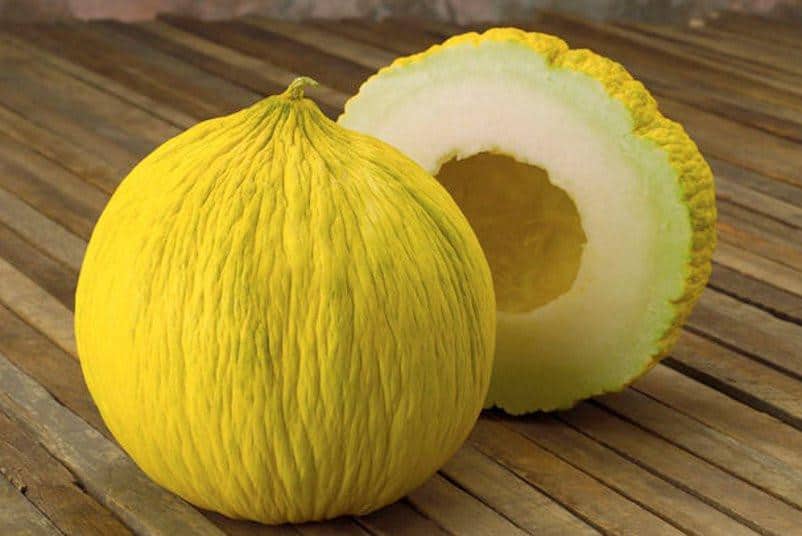
You may get this type of melon confused with a cantaloupe or dew melon if you aren’t familiar with the Casaba melon. A Casaba melon skin has ridges or lines, whereas a cantaloupe has sort of a bumpy texture and the dew melon skin is smooth.
As with most melons, the Casaba Melon is full of seeds.
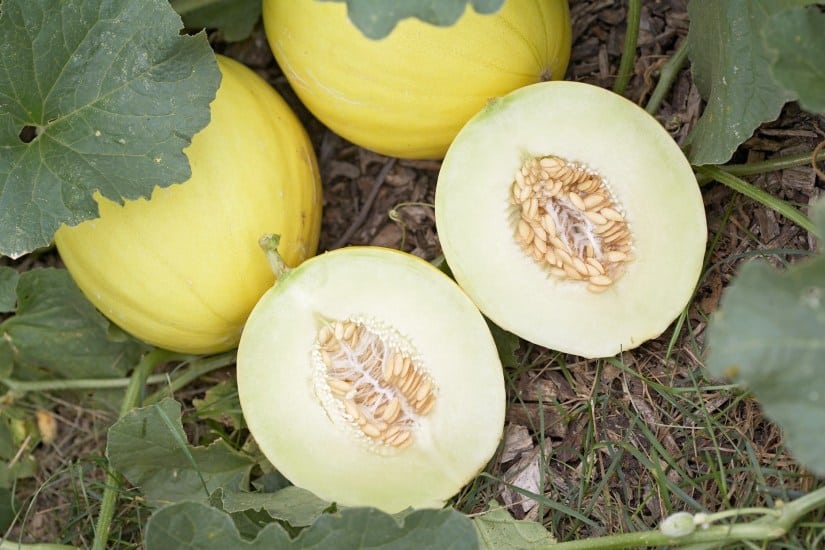
Discard before eating or preparing a dish. The flavor of the melon can range from very sweet to not so sweet. It depends on the time of year they are grown and purchased. The flavor is almost like a cucumber. This sound like a melon one might have to acquire a taste for but who knows until you try it. The nutritional value surely outweighs the possibility of not liking it.
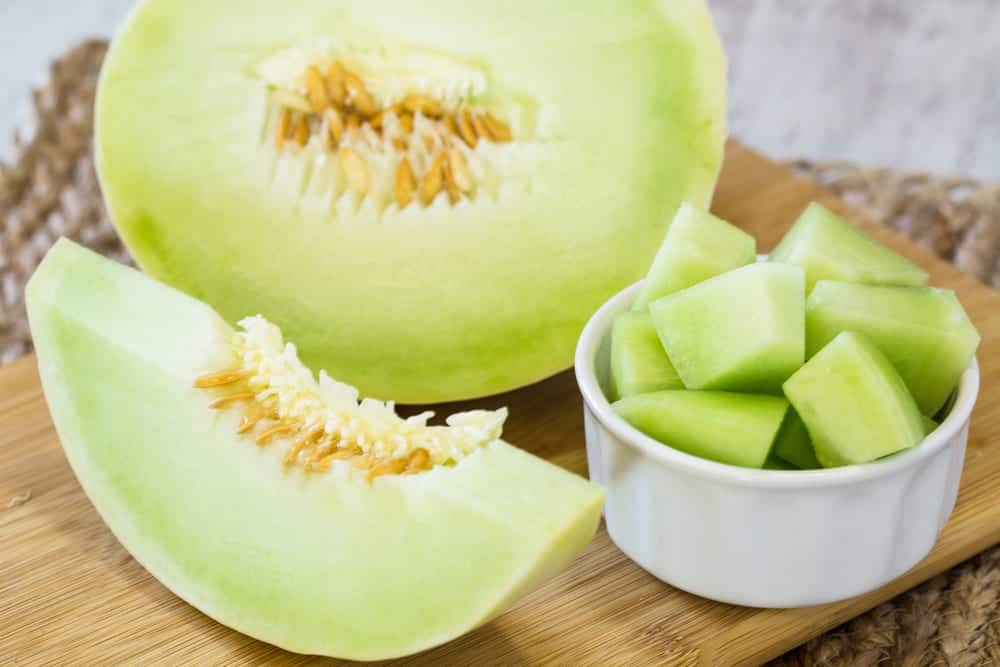
You can serve the Casaba Melon sliced, peeled and sliced in cubes or scooped as melon balls. This unique little melon would be great in any type of salad–fruit or vegetable. I will personally try mines with ranch dressing but I am sure a little lemon or lime juice will taste just as good.
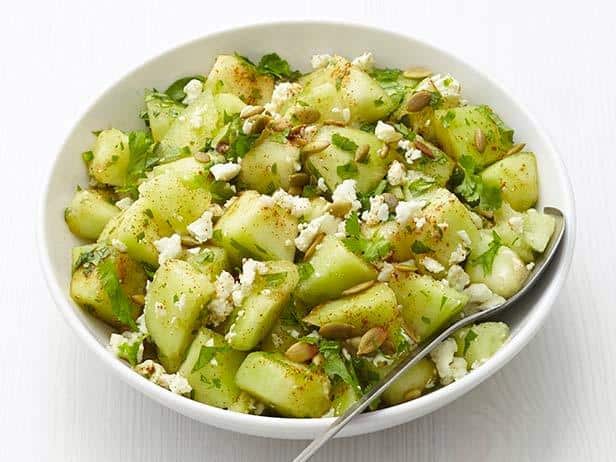
The Casaba Melon would be a great nutritional addition to any school cafeteria menu. Its’ nutritional value is very high in vitamin c and other necessary nutrients.


